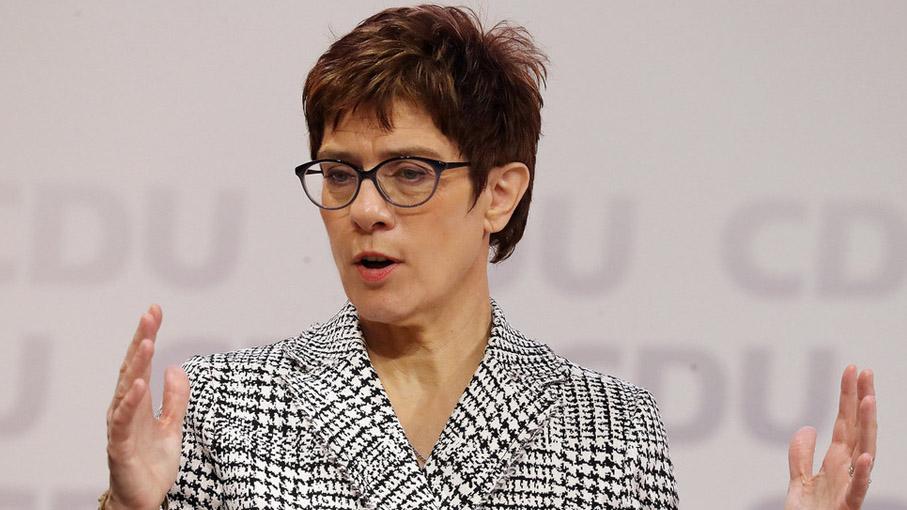Germany’s new defense minister recently talked about Germany “acting with more courage” and “assuming more responsibilities.”
During the keynote speech delivered on November 7 when visiting the Munich University of the Federal Armed Forces, Annegret Kramp-Karrenbauer, Germany’s defense minister, laid out a more proactive security policy approach, wrote Ni Xiaoshan, a researcher with the Center for German Studies at Shanghai-based Tongji University, for news portal The Paper.
Given the US has become a “disruptor” of the existing rules of the international order, “Germany must act to meet future challenges and maintain a reliable and free world order,” she said, proposing that the country establish a national security committee, increase military spending and help built a more practical European security structure.
She also believes that Germany must take a clear stance over all issues affecting Germany’s strategic interests, call on all stakeholders to take responsibilities for European security and give play to its constructive role in European security issues, and face up to the will to use all kinds of military means.
Kramp-Karrenbauer intends to improve the “execution” of Germany’s security and defense policies, realizing the goal of Germany consciously representing its strategic interests, Ni wrote. But she doubted whether the minister’s plan would materialize.
First, it does not have the general support of the German people, as she already conceded in her speech, Ni wrote. A poll commissioned by the German Press Agency (Deutsche Presse-Agentur)in 2018, for example, shows 60 percent of Germans oppose the commitment to bring military spending to 1.5 percent of GDP by 2024.
Also, there is no cross-party consensus on foreign and security policies. Since Kramp-Karrenbauer put forward her proposal on the safe zone in northern Syria, she has been criticized for being too “rash,” a style also conveyed in her keynote speech. It may affect the relations between political parties and government ministries, leading to further political polarization in Germany’s security and national defense policies, which holds back the forming of more strategic, sustainable policies, Ni said.
Meanwhile, the minister’s remarks were met with some accolades by some German media outlets. Spiegel Online considered her speech “courageous,” and even took it as “a turning point in Germany’s security policy.” Ni wrote that even though this may not have been her original intention, the phenomenon shows that some German politicians and media professionals are eager to put the proactive approach into action.
Ni concluded that her speech does represent some German politicians, yet judging from the internal differences of opinion, it may not be fully implemented as a policy. Her opinions are of certain value to future German policy, and this positive feedback is worth our attention.

 Old Version
Old Version